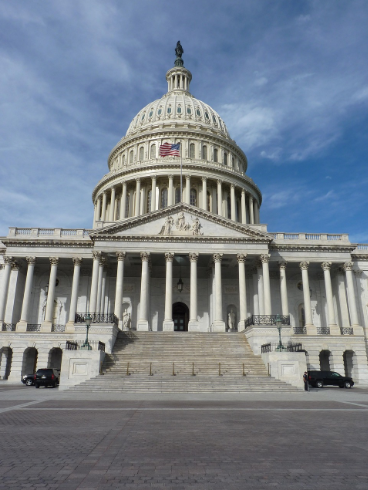Donald Trump Proposes New Immigration Law
On January 27th, President Donald Trump signed an executive order titled “Protecting the Nation From Foreign Terrorist Entry Into the United States.” It is in relation to immigration and border security and is put in place in order to follow through with campaign promises.
Reagan Zimmerman, an Arrowhead junior, says, “I think that immigration reform is necessary to keep out illegal immigrants and terrorists. I am not attempting to say that these two are the same, nor do they have the same intentions, but neither are supposed to be in our country.”
The order itself is lengthy. According to The New York Times, it includes provisions such as banning Syrian refugees from entering the United States as well as citizens from predominantly Muslim countries for entering within the next 90 days, beginning on Friday, January 27th.
Ellen Wieland, an Arrowhead junior, says, “Although [Trump’s] staff assure the public that the ban is meant to fight terrorism and protect American citizens, it is far from effective. [According to Uri Friedman], only 20 immigrants out of 3.25 million have been accused of terrorism in America. That’s 0.0006%, which is hardly enough to warrant ruining the lives of thousands of refugees. The simple, though distressing and painful conclusion, is that it is not the terrorist ties of refugees that scare President Trump, but their religion. Keeping people out of the United States because they are Muslim or were born in Muslim countries is inherently unconstitutional, as is imposing religious tests, yet President Trump has discussed giving Christian immigrants priority into the country and making lists of Muslim Americans.”
This order sparked chaos across the country. Sally Q. Yates, acting attorney general, was fired for refusing to defend the order.
In a letter to Justice Department lawyers she said, “At present, I am not convinced that the defense of the executive order is consistent with these responsibilities, nor am I convinced that the executive order is lawful.”
In response, Trump stated that she was “weak on borders and very weak on illegal immigration.”
Many federal judges have had reactions similarly to Yates. Federal judges in Brooklyn, Massachusetts, Virginia, and Washington all issued rulings on the following Saturday night blocking parts of the order.
“I believe at one point Trump said something about anyone who comes here illegally should never be allowed to become a citizen. I think that’s a little bit extreme. Sometimes, people break laws in order to do what’s best for their families. So, while I think illegal immigration is wrong, I understand that there can be good intentions behind it, so barring people from ever becoming citizens is just too much for me. Trump doesn’t seem to see it from a humane perspective, just the fact that these people are lawbreakers and therefore criminals,” says Zimmerman.
According to President Trump’s ten point plan, which can be found on his website, day one of his presidency would involve the start of construction on a wall on the southern border of the United States.
Zimmerman says, “I agree that we need to be tougher on illegal immigration, and frankly I’m okay with building a wall. Desperate times call for desperate measures, and I think national security is a huge risk right now.”
Physical construction of the wall has not begun, but the executive order includes aspects of border control which will push the process along.
Wieland says, “Trump’s wall, should it come to fruition, would be a stain upon our nation’s history. After years of segregation and imperialism and internment camps, the United States as a whole needs to come to the realization that diversity is a good thing and people that are different don’t need to be ostracized. The violent rhetoric that our president has spewed about immigrants, especially from Mexico, is opprobrious and unfounded. Building a wall to prevent people from entering the country would damage foreign relations with other world powers, making many allies hesitant to come to our aid in the event of a crisis, knowing that we might not help them. This is a danger of isolationism, and with rising global tensions, especially with Russia, this could spell disaster.”
According to President Trump’s reform, a nation without borders is not a nation, a nation without laws is not a nation, and a nation that does not serve its own citizens is not a nation.
“I think in principle, Trump has a lot of great ideas. However, when it comes to implementation, his policies may seem a little extreme. I am looking forward to what the rest of his presidency holds,” says Zimmerman.







